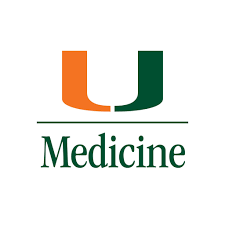
Editor's Note Pulmonary embolism (PE) and deep vein thrombosis (DVT) are rare after same-day surgeries, but when they occur, they carry high risks of death and readmission. According to Anesthesiology News May 12, a University of Texas Southwestern Medical Center analysis of more than 1.1 million outpatient procedures found an…

Editor's Note Medicare patients treated in hospital outpatient departments (HOPDs) present with greater socioeconomic and clinical complexity than peers seen in independent physician offices, including higher prior emergency department (ED) visits and inpatient use. According to an American Hospital Association (AHA) study conducted by KNG Health Consulting and published on…

Editor's Note Minimally invasive surgery (MIS) with the Artemis Neuro Evacuation Device reduced hematoma volume efficiently and lowered serious adverse events but did not improve long-term disability or mortality compared with medical management in spontaneous supratentorial intracerebral hemorrhage (ICH), JAMA Neurology September 2 reports. The “MIND randomized clinical trial” enrolled…

Editor's Note A simple adjustment to walking style can relieve osteoarthritis pain as well as medication and may delay the need for knee surgery, according to a year-long clinical trial published in The Lancet Rheumatology and covered by The Independent on August 18. As detailed in the article, University of…

Editor's Note A new call for papers is inviting researchers to spotlight the technologies redefining surgical care. In May 2025, npj Digital Surgery opened submissions for a special collection titled Intelligent and Integrated Systems for Digital Surgery, with a deadline of May 27, 2026. The collection will highlight advances at…

Editor's Note Artificial intelligence (AI) can track surgical performance with pinpoint accuracy, but true mastery still requires a human teacher, American Council on Science and Health August 20 reports. A randomized trial of an AI-powered surgical tutoring system found that while algorithms provided real-time error detection, the best learning happened…

Editor's Note Minimally invasive surgery can extend beyond valve replacement to complex aortic procedures without sacrificing safety or long-term outcomes. According to an August 21 news update from the University of Miami Miller School of Medicine, a new study of 796 patients found adding ascending aortic or hemiarch replacement to…

Editor's Note Roughly one in every 60 cesarean deliveries results in a severe surgical complication, according to new research from University of California San Francisco (UCSF) published in Obstetrics and Gynecology, MedicalXpress August 25 reports. With about 1.1 million cesareans performed each year in the US, this translates to an…

Editor's Note Early findings indicate the da Vinci 5 (DV5) platform’s force feedback technology can reduce the amount of force surgeons apply to tissue, potentially minimizing trauma during colorectal surgery. According to a pilot study published in the American Journal of Surgery on July 10, the feature allows surgeons to…

Editor's Note Loosening fasting policies before surgery does not increase the risk of post-surgical aspiration, also known as aspiration pneumonia, according to a systematic review and meta-analysis published in the journal Surgery in August 2025. The researchers analyzed 17 studies published between 2016 and 2023, including randomized clinical trials and…